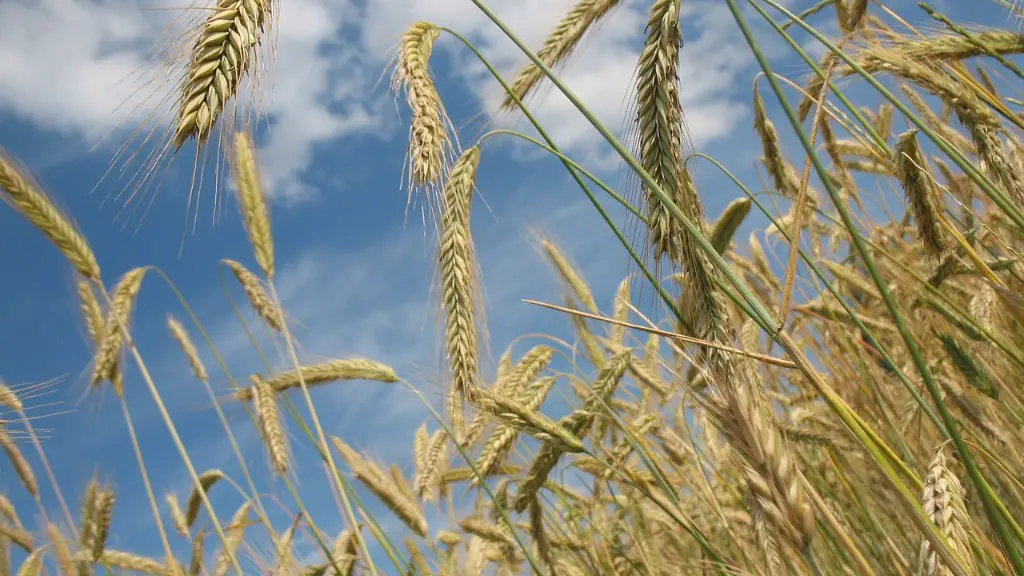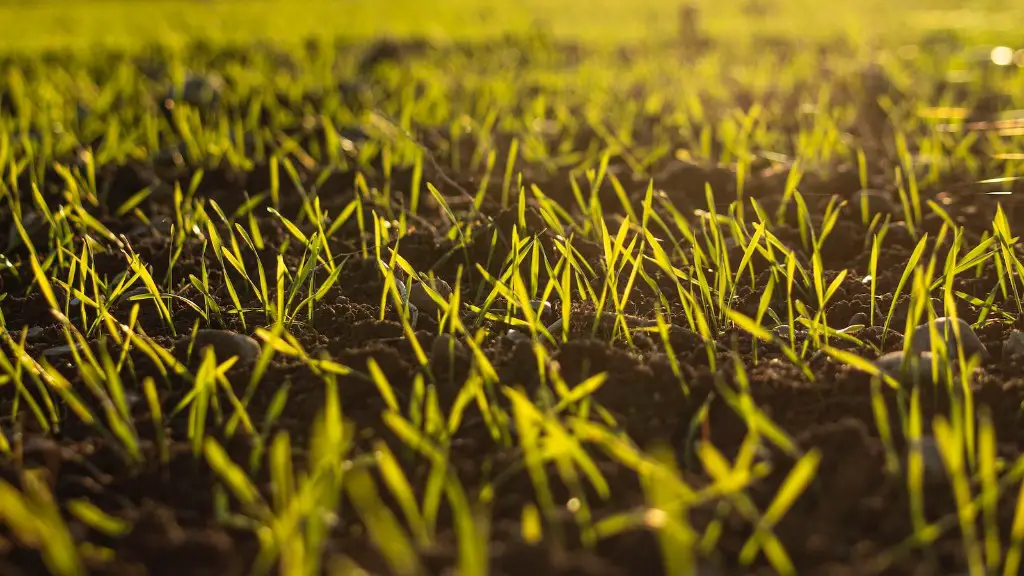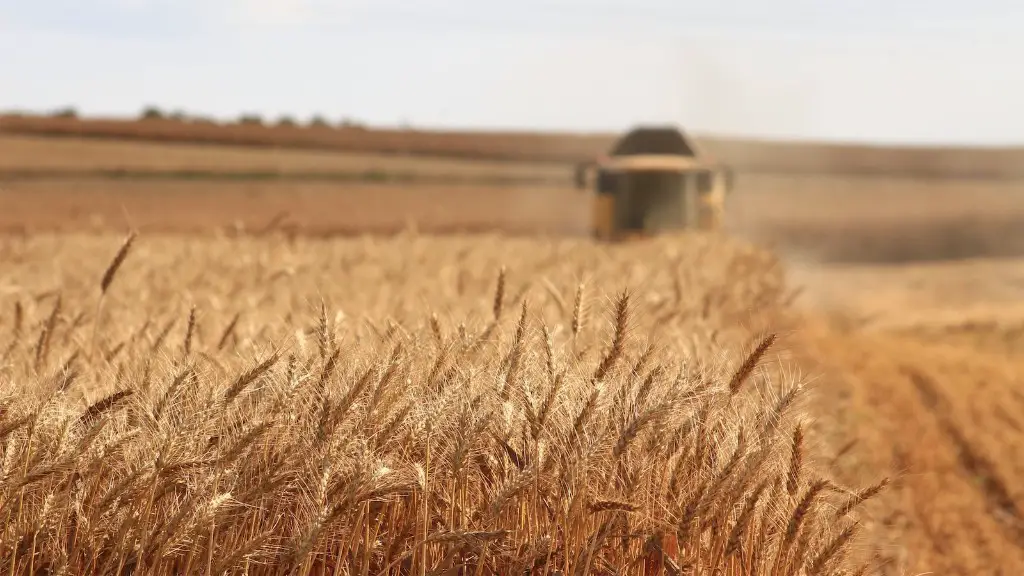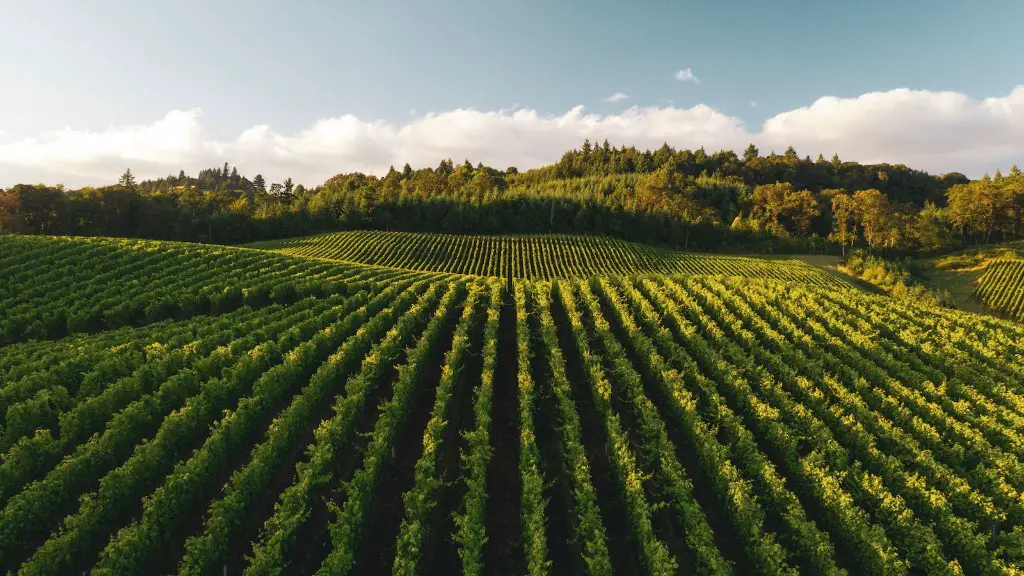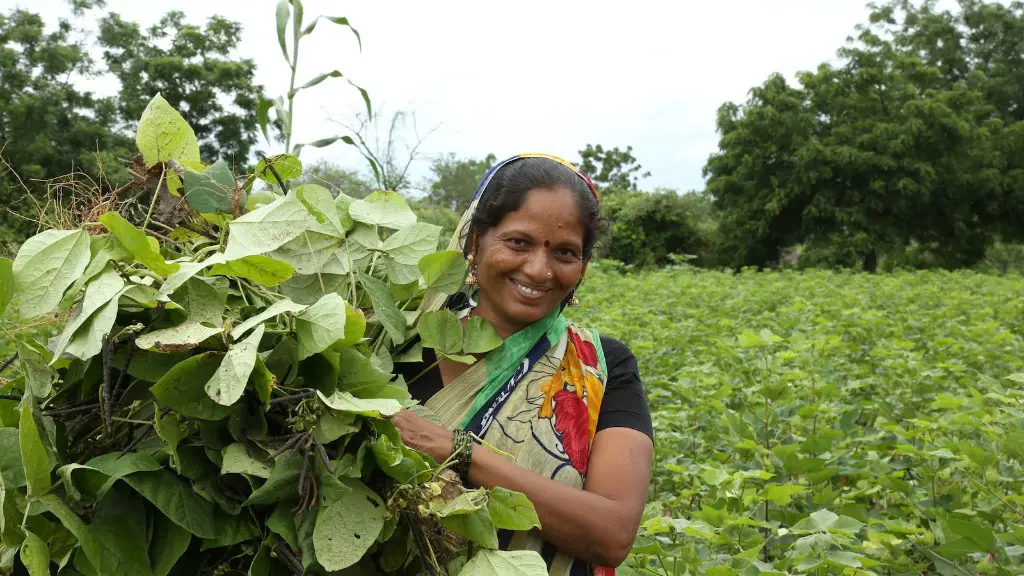In agriculture, lodging refers to the bending or leaning of a plant stem that causes the plant to fall over. This can be caused by a number of factors, including high winds, heavy rains, or the weight of the plant itself. Lodging can severely damage a crop, making it difficult to harvest and leading to lower yields.
Lodging is a condition that can affect crops, particularly cereals, in which the plants are bent over at the base or joint, causing them to grow vertically rather than horizontally. This can happen due to a number of reasons, including high winds, heavy rain, or poor nutrition. If the plants are not able to right themselves, they will eventually die.
What is the meaning of lodging in plants?
Lodging is a serious issue for farmers as it can result in drastic reductions in crop yields. There are a number of factors that can contribute to lodging, including high winds, heavy rain, and poorly managed irrigation. In order to prevent lodging, farmers need to take care to manage their crops carefully and to monitor weather conditions.
Lodging is the falling of crop plants at the grain maturation stage. It happens due to untimely rains and strong winds. This results in the loss of valuable crops. Farmers need to be aware of the conditions that lead to lodging and take steps to prevent it.
What are the effects of lodging
Lodging is a very costly problem for farmers due to its effects on flowering, grain filling, grain formation, carbohydrate assimilation, poor grain quality, associated harvesting problems and high yield losses. If lodging occurs after the plant matures, it will not affect the grain yield but it may reduce the amount of harvestable grain.
Lodging is a major problem in rice production, as it can cause significant yield loss. It occurs when plant stems weaken to the point they can no longer support the weight of the grain, causing it to fall over. As growers push for maximum grain yield, lodging is becoming an increasingly significant factor. This can increase the time and cost of harvest, as well as reducing the quality of the crop.
What is an example of lodging?
There are many different types of lodging available to travelers, from hotels and motels to private homes and camping sites. Each type of lodging has its own advantages and disadvantages, so it’s important to choose the right option for your particular trip. Hotels and motels are typically the most expensive option, but they offer the most amenities and the most convenience. Private homes and vacation rentals can be more affordable, but they may require more planning and effort to find and book. Camping sites can be a great option for budget-minded travelers, but they may not offer the same level of comfort and convenience as other types of lodging.
A dwelling is a place to live, typically a house or an apartment. A dwelling can also be a temporary place to live or sleep, such as a hotel room.
What causes crop lodging?
The most common cause of lodging is the excessive use of nitrogen, often combined with a heavy seeding rate or the use of tall varieties. Heavy application of nitrogen prior to seeding or before the start of stem elongation often produces weaker stems with longer internodes. This increases the plant’s susceptibility to lodging. Other factors that can contribute to lodging include:
• Use of high-yielding varieties
• Soft, succulent growth
• Vining habit
• Moist, dense soils
• High plant populations
• Stalk breakage
Lodging accommodations are places where people can stay overnight. They fall into three distinct categories: hotels, vacation rentals, or outdoor lodging.
Hotels are usually the most expensive option, but they offer the most amenities and the most comfortable accommodations. Vacation rentals are usually less expensive than hotels, but they may not have as many amenities. Outdoor lodging is the least expensive option, but it can be the most adventurous!
How does lodging affect yield
It’s not completely clear why lodging causes yield loss, but the generally accepted reason is a reduction in net photosynthesis. With less photosynthesis, there is less energy going to the developing pods and seeds.
There are a wide variety of hotel operations roles available in different departments, all of which aim to ensure guest satisfaction. Front desk, catering, events, housekeeping and human resources are all important areas of the hotel that need to be run smoothly in order to keep guests happy. Operations professionals play a vital role in overseeing the daily activities of their teams and making sure that everything runs smoothly.
What are components of lodging?
The lodging sector plays an important role in the tourism industry, providing accommodations for travelers. There are a variety of lodging options available, from budget-friendly motels to luxurious resorts. Bed and breakfasts are a popular choice for those looking for a more intimate and personalized experience.
The accommodation sector is a vital part of the tourism industry, providing lodgings for holidaymakers and business travelers alike. Whether it’s a hotel, motel, bed and breakfast, or vacation rental, the accommodation sector offers a wide range of options to suit every budget and need. This sector is also important for local people who may need temporary accommodation for a variety of reasons, such as attending a wedding or going on a business trip. No matter what the reason, the accommodation sector is an important part of the tourism industry and plays a key role in making everyone’s trip a success.
What are two types of lodging
There are 16 major types of accommodation, they are:
Hotels
Bed and breakfasts
Guest houses and home-stays
Chalets
Youth hostels
The term “accommodation” means money paid for the board and lodging of a person on a regular and continuing or indefinite basis. The term “lodging” means the provision of a room that the recipient can access as required on a continuing or indefinite basis.
Can lodged wheat be harvested?
Harvesting lodged wheat is a slow, difficult process. In order to ensure a successful harvest, it is important to take your time, slow down the combine, and make sure the reel is in the correct position. Additionally, it is important to cut the wheat as low to the ground as possible, and to combine across the direction of the lodged wheat. By following these instructions, you can help ensure a successful wheat harvest.
Boarding and lodging refers to the accommodation provided for people who are away from home, such as in a hotel, hostel, or guest house. The term can also be used to refer to the food and drink provided for guests.
Final Words
In agriculture, lodging refers to the bending or leaning of a plant’s stems due to the weight of the plant itself, the weight of the fruit or vegetables it is carrying, or damage from wind or heavy rain.
Lodging in agriculture is the practice of providing temporary accommodation for agricultural workers. This can be in the form of campsites, hostels, or even mobile homes. The main aim of lodging in agriculture is to provide safe and comfortable accommodation for workers who are often working long hours in remote locations. This can help to improve productivity and morale among workers, as well as reducing the risk of accidents or injuries.

